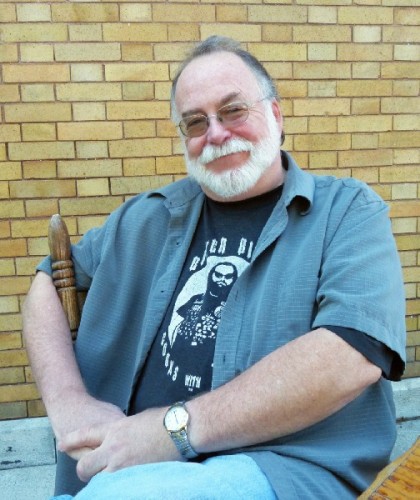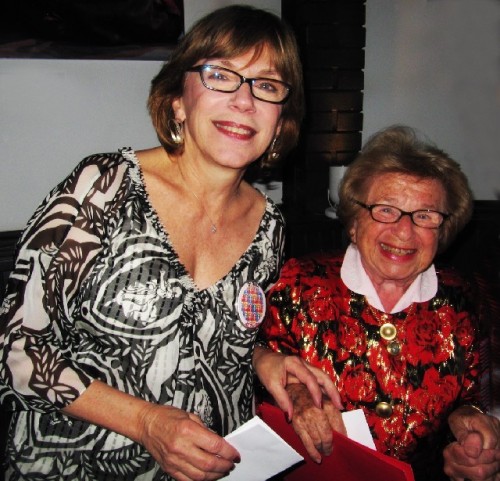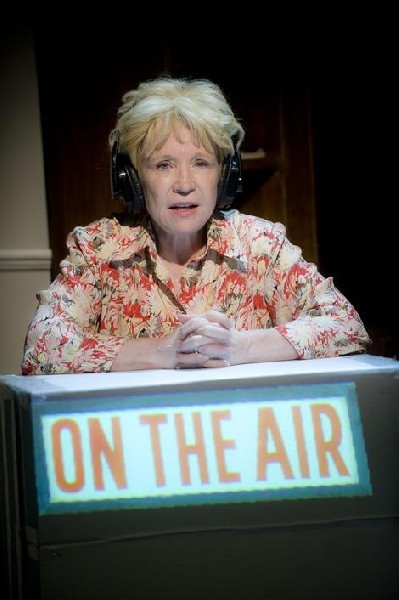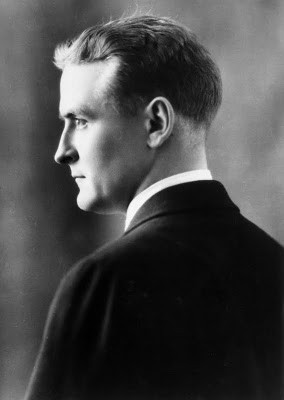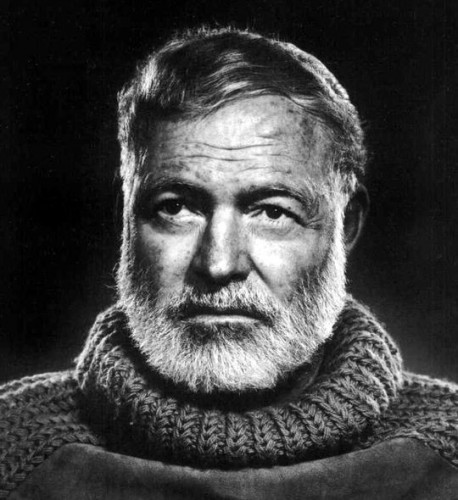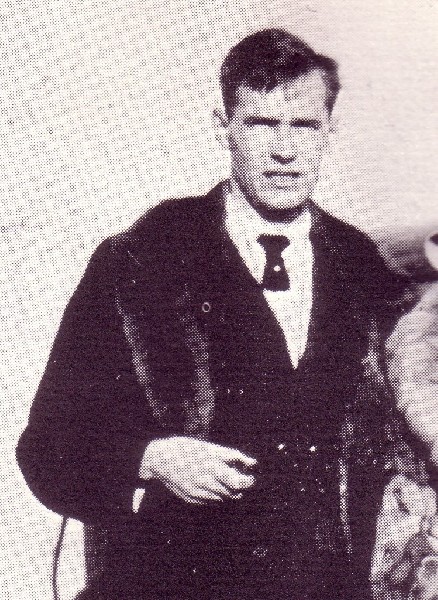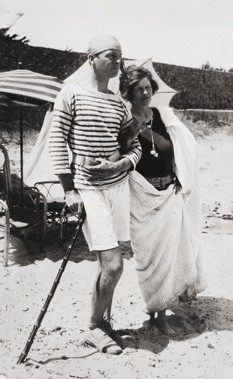Mark St. Germain 's Dr. Ruth at Barrington Stage
The Process of Developing Plays
By: Charles Giuliano - Sep 24, 2012
In recognition of playwright Mark St. Germain’s long association with Barrington Stage Company its second theatre has been named for him. He is a board member who often advises artistic director Julianne Boyd in programming.
His play Freud’s Last Session, which premiered at Barrington Stage, continues to be produced nationally and globally.
We met to catch up with his latest work during rehearsals of Dr. Ruth All the Way which sold out its early season run starring Debra Jo Rupp. It returns through October 7 with fine tuning.
Typically, St. Germain spends half the day writing and the other half researching. There are always several plays in varying stages of development. He discussed one that is being commissioned for next summer’s Contemporary American Theatre Festival. The American Theatre Critics Association plans to meet during the annual event.
Charles Giuliano You were here at the start of the season with your new, one woman play, Dr. Ruth All the Way, and are returning now with revisions. When we spoke at that time you mentioned a new project which was too soon to discuss. Is there an update?
Mark St. Germain I have a commission from the Contemporary American Theatre Festival in Shepherdstown, West Virginia. I was there this summer to get a sense of the place. I’m doing a play called Scott and Hem in the Garden of Allah about the last meeting between Fitzgerald and Hemingway.
(The Garden of Allah was a famous apartment complex in West Hollywood, California, on Sunset Boulevard between Crescent Heights and Havenhurst, at the east end of the Sunset Strip. Built in a Spanish-Moorish style, it derived its name from stage and screen actress Alla Nazimova, the original owner. As her acting career declined, Nazimova built a complex of 25 villas around the main building in 1927. The complex had the address of 8152 Sunset Boulevard. The Garden of Allah became home to many celebrities and literary figures. F. Scott Fitzgerald lived there for several months in 1937-38 at the beginning of his final sojourn in Hollywood. Fitzgerald's biographer and lover Sheilah Graham later wrote a book called The Garden of Allah. The destruction of the Garden of Allah, and its replacement with a strip mall and parking lot, allegedly inspired the famous line in Joni Mitchell's song "Big Yellow Taxi", "They paved paradise, and put up a parking lot.")
This is the first or second week that he was there on his third trip to the coast.
CG I read extensively work by and about Fitzgerald including a book about his Hollywood years living with Sheliah Graham. I recall it as terribly sad.
MSG Terribly sad. He had Zelda in an institution. Scottie in school.
CG Zelda died in a fire at the institution.
MSG Yes, after he was dead. It’s terribly sad. His books were not out of print but they were not all that easy to find. I don’t know the exact sum but I know that he made under $20 in royalties that year.
CG How do you live on that?
MSG That’s why he was out there getting $1,000 a week working on films.
CG Do you know some of the films he worked on?
MSG He only got credit for one. That was a screenplay for Three Comrades. I think there were three writers credited. They were shopping him around. He did like two weeks on Gone with the Wind. They just used him for whatever they needed. At some point he just gave up because his heart was broken. They would take what he considered to be a good script and just passed it along to the next writer to rewrite. He’s fascinating, and at that point in his life, it’s a huge tragedy.
CG What was the state of Hemingway at the time of their meeting?
MSG It was 1937 and Hemingway was at the height of his game. He had just come back from the Spanish American war. He had a documentary Spanish Earth.
(Hemingway wrote commentary and helped finance the propaganda film, shot by a Dutchman, Joris Ivens. Orson Welles, enlisted to record the commentary, wanted to change some of the lines which he thought sounded pompous. At a viewing of the film, described by Welles in "Cahiers du Cinéma," he and Hemingway came to blows, going at each other with chairs and fists, as the armies fought it out on the screen in front of them.)
He was in Hollywood to show it to people. They had a benefit at Fredric March’s house. People were supposed to give $1,000 to come.
CG You always come up with such interesting circumstances. But there seems to be a thread. They are often about historical individuals; encounters between great men. One might draw similarities to Freud’s Last Session and the meeting between Freud and C.S. Lewis.
MSG Absolutely. This is a three person play. It’s a little different. And there’s a real clock on it. Fitzgerald has to turn in a certain rewrite by the end of the night. They have a studio secretary there who is harassing him. It’s all in real time. One night. He had apparently gone to the Fredric March party but his relationship to Hemingway was very strained. He was the one who championed Hemingway. He was the one who got him Max Perkins as a publisher. He worshiped Hemingway.
Right after this he said to Thornton Wilder “Hemingway talks with the authority of success and I talk with the authority of failure.” He just didn’t believe he would have any lasting impact. Hemingway certainly didn’t discourage it.
Apparently, at the party he never had a conversation with Hemingway. Lillian Hellman wrote about it but I think it was all lies. He never did have a conversation with him so the premise of the play is that Hemingway, because they didn’t talk, come by to talk with him. I’ve just spent two months researching this. If you’re going to waste time like that they better be interesting company. These guys are really interesting company.
CG As I mentioned I went through a Fitzgerald period.
MSG Unless you read the short stories.
CG I did as well as Mitford’s book Zelda and her novel Save Me the Waltz. Stories like “Diamond as Big as the Ritz” and “Bernice Bobs Her Hair.”
MSG “Curious Case of Benjamin Button” he did that.
CG His unfinished novel was made into a movie.
MSG The Last Tycoon. Which was quite good I thought. Thurber made an observation, he was certainly an alcoholic, terrible alcoholic, on the other hand, he doesn’t know of any writer who was that physically broken down, who could have written something as fine as that at the end of his life.
CG I also had a deep Hemingway period and have been reading Gertrude Stein’s Autobiography of Alice B. Toklas. A couple of years ago I reread Hemingway’s A Moveable Feast and discovered that it was much meaner than I had recalled.
MSG Terribly mean. He went after Gertrude because Gertrude went after him. He had a pattern of taking people who really helped him and then turning on them.
CG Part of the motive ot rereading Fitzgerald and Hemingway was inspired by Deborah Rothschild's Gerald Murphy exhibition at the Williams College Museum of Art. I wanted to get up to speed with recalling the Lost Generation including including a book on the Murphys. (Amanda Vaill's Everybody Was So Young: Gerald and Sara Murphy: A Lost Generation Love Story)
MSG Living Well is the Best Revenge?
CG No, that’s the Calvin Tompkins book which is really thin, kind of a New Yorker length. Have you ever read Black Sun: The Brief Transit and Violent Eclipse of Harry Crosby by Geoffrey Wolff?
(Harry Crosby was the godson of J. P. Morgan and a friend of Ernest Hemingway. Living in Paris in the twenties and directing the Black Sun Press, which published James Joyce among others, Crosby was at the center of the wild life of the lost generation. Drugs, drink, sex, gambling. In 1929, he shot his girlfriend, the recent bride of another man, and then himself.)
He dropped out of Harvard to become an ambulance driver during WWI and stayed on in Paris becoming a member of the Lost Generation. He founded Black Sun Press.
MSG Yes, I’ve heard of that.
CG Can we compare this new play and Freud’s Last Session. How does the dynamic of the conflict work?
MSG That’s the biggest question. With Freud and Lewis it was really kind of simple. Why are they there? They’re there to debate the existence of God. In this one you have to ask yourself why would Hemingway come? Is it simply to bully Fitzgerald again? I don’t think so. I don’t want to give too much away. He comes with an agenda.
CG Is the work not finished?
MSG I just started. I literally have just ten pages. It’s strange. I have ideas on what I want to do. I have the end and middle of the play and I’m going in that direction.
CG How do you approach this? Do you have a sketch, outline, or template that you follow? Is it intuitive?
MSG The way I did it, and I’m actually stopping now, there are a couple more books I want to incorporate in terms of research. I read about 20 different books and then all of that information gives you the background. It’s all about what you want. What each person wants. Then you have to decide what Hemingway wants out of it. What Fitzgerald wants out of it. That’s really what the play is about. In a really broad sense it’s about why they do this and what they expect from it. And living forever.
CG Currently, I am going through a reevaluation of long term friendships. They were formed at an earlier time in our lives that was looser and more casual. Now those friendships are being tested as we face different circumstances and crisis in our lives. The initial assumptions of why we became friends long ago often do not continue to hold. Is that possibly what Hemingway and Fitzgerald were going through?
MSG Oh sure.
CG They were friends during a time of hard drinking and partying. Now life, as you say, is harder for Fitzgerald. Hemingway was successful. The dynamic changed. Is it a phenomenon that you see in life itself?
MSG I definitely do. They totally reversed. When Fitzgerald met Hemingway he was very well known. He was a golden boy. Back then Hemingway had maybe two stories published. By the end of Fitzgerald’s life he was a footnote. The resurgence only came later.
CG He was a paradigm of the Jazz Age and the Twenties. As we moved on to the Depression he was perhaps a symbol of a forgotten era.
MSG He ended up creating, as Hemingway did, a myth about himself. He was not who he pretended to be. Fitzgerald wrote about his own decline. He did interviews where he was totally drunk. He would do an interview and when it was published people would just feel sorry for him. He wrote a series of essays which he put in a book called The Crack- Up. It’s about his disintegration. Hemingway, underneath it all, I think, always attacked his own fears. He attacked others because he saw in them a fear of what he would become. That went for his masculinity, his sanity.
CG A few years ago while traveling in Europe I reread The Snows of Kilimanjaro and now Stein. I realize that stylistically they have been influences on my own prose style. Between them they argued about who invented that style. Reading Hemingway’s short stories the sentences are so clipped. Everything counts. Where reading Fitzgerald it flows like a string quartet.
MSG It’s very musical. If you go onto You Tube you can find a recording that Fitzgerald did, I think it’s a Keats poem. Then you can hear what Hemingway recorded and they both spoke exactly as they wrote.
CG You’re back in town for Dr. Ruth and promised an extreme makeover.
MSG It’s different and much better. It’s much sharper. It’s cut down.
CG From two acts to one.
MSG I wish. It’s still two acts. I could not do it. There were too many things. I did take out sections but it didn’t amount to a 90 minute play. If I put it all together you would still be sitting there for maybe an hour and forty five minutes. It’s also really unfair to Debra (Jo Rupp). She needs that break.
CG How long is it now?
MSG Today we’ll hear it for the first time together. I took out at least five pages.
CG Did you put in anything?
MSG Yes. I think it becomes clearer why she became a sex therapist. It goes deeper underneath the skin with her. I am very happy that she allowed me to do that.
CG When I did the series of dialogues with Terry Teachout about Satchmo at the Waldorf he talked about the difficult of creating conflict in a one man show. In an e mail you wrote to me that this is why you will never again write a one person show. Can you elaborate on that?
MSG It’s one of the things that I really tried to sharpen this time around. What is the conflict and where does she show it? You’re setting up a really artificial situation. No matter how you do it you’re addressing the audience. It just depends upon the framework. To me it’s like juggling plates that you always have to be spinning different plates to keep it going. It’s really quite unnatural if you think about it. Dialogue is so much more natural. You have two people talking with each other. So you can have conflict.
CG What is the conflict in Dr. Ruth?
MSG There’s a couple of things. She’s an incredibly private person. For her to talk about herself just does not happen. Which I know from being with her. I’ve seen her do it to other people and she did it to me this time. We were driving in the car and there was a conversation about how she didn’t want to go to the Frankfurt Book Fair this year. I came up with what I thought was a very innocuous comment. She said “Don’t analyze me.” It’s kind of a joke but it’s not a joke. I still rib her about it.
The conflict is in adjusting to the death of her husband, the past, coming to terms with some things in her past. That’s why it’s so difficult. Hamlet has other people around him. In a one person play you don’t. I would never do it again.
CG John Douglas Thompson had never done a one man show before Satchmo. He spoke to me of the burden of carrying it alone with nobody on stage to interact with. Normally during a play he gets to off stage and catch a breath. Being on stage all of the time he is finding to be difficult.
MSG It is. Debra Jo Rupp is such a trooper. Part of the problem the last time was a race to even get this memorized. At some point you had to freeze it. You saw things that were wrong but you couldn’t change it and that was very frustrating. We are coming back at it and making changes.
CG You took notes.
MSG I knew what I wanted to do. Once you saw it a couple of times you knew.
CG How much rehearsal time do you have?
MSG Not an awful lot.
CG You can still make changes during previews.
MSG Very small things. If all of a sudden inspiration hit and we saw, ok, we don’t need these two pages, that would be much easier than changing lines.
CG During rehearsal for Satchmo John talked about only getting three hours of sleep because he was running all of the new lines through his head. These conversations further my understanding of what is involved in developing a play. Most critics just come to opening night and see the result. Discussing the process adds a different dynamic.
MSG Totally.
CG It means a better understanding of the challenges involved. You’re talking about being nice to Debra.
MSG It’s not only being nice. It’s being practical. I think I read in your Terry Teachout piece that they froze the show at some point. Then your hands are tied. When the audience is there you are thinking I wish I could do this. I wish I could do that. But we couldn’t.
CG How did you feel about the first run?
MSG I thought it was about 75 to 80% there. It needed more.
CG Twenty five percent is a big chunk.
MSG It is.
CG It was well received.
MSG It was.
CG Particularly by Dr. Ruth.
MSG She was the biggest fan and her family. I was concerned about how her children would respond.
CG It got good reviews. Did you read them?
MSG I read some this time. Honestly I read the ones which were critical more carefully. If I was entirely pleased with the play I wouldn’t bother reading critical responses because it wouldn’t matter to me. On the other hand I wanted to see did they think certain spots didn’t work. I can’t remember who wrote what. I remember this is right. That’s right.
CG The show did well.
MSG That’s why they’re bringing it back. It sold out.
CG How is it selling this time?
MSG It’s way ahead of what they thought it could be. They’re very happy.
CG Fall is tough.
MSG Yeah. I know they’re way ahead of where they wanted it to be. I think it will do well. Then the big question is what next? What do we do with it?
Part Two

